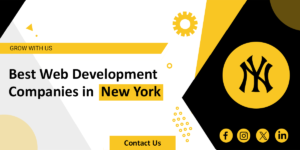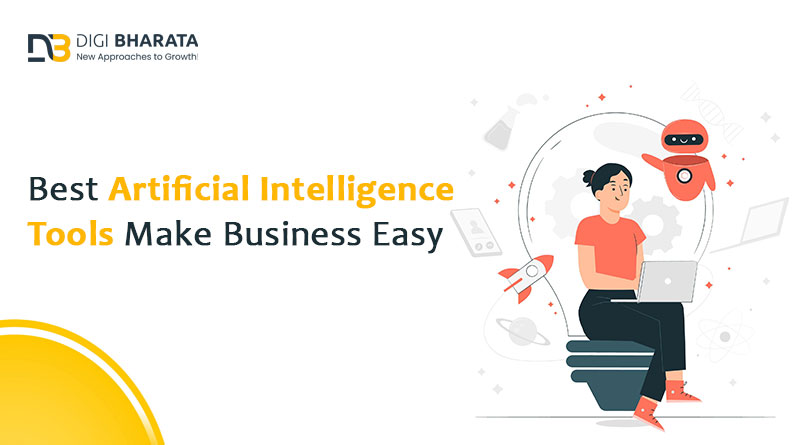Artificial Intelligence (AI) has been transforming the way businesses operate, making tasks easier and more efficient. With the rapid growth of AI, there are now numerous AI tools available in the market that can help companies automate and streamline various business processes.
In this article, we’ll be exploring the top 10 AI tools of today that can help you get started with AI. Before this, we have to understand its Pros and Cons.
So let’s start;
Table of Contents
Pros and Cons of AI Tools
Pros of AI Tools
Increased efficiency: AI tools can automate and streamline various tasks, reducing the time and effort required to complete them. This can help organizations become more productive and efficient.
Also Check: Best Customer Relationship Management (CRM) Software
Improved accuracy: AI tools can perform tasks with greater accuracy and consistency than humans, reducing the risk of errors and improving the quality of the output.
Better decision-making: AI tools can provide organizations with real-time data analysis and insights, allowing them to make more informed decisions and stay ahead of the competition.
Cost savings: By automating tasks and reducing the need for manual labor, AI tools can help organizations save money on labor costs and other expenses.
Customization: Many AI tools offer the ability to customize the rules and algorithms used to automate tasks, allowing organizations to align the output with their specific needs and requirements.
Cons of AI Tools
High costs: The cost of acquiring and integrating AI tools can be high, especially for small organizations or those with limited budgets.
Technical expertise required: AI tools often require technical expertise to use and maintain, making them less accessible to organizations without in-house technical resources.
Job loss: Automation and streamlining of tasks through AI tools can result in job losses for workers who perform those tasks.
Lack of creativity: AI tools are designed to follow specific rules and algorithms, which can limit their ability to produce truly innovative solutions.
Bias and discrimination: AI tools can perpetuate and amplify existing biases in the data used to train them, leading to discriminatory outcomes. It is important for organizations to carefully consider the ethical implications of AI and take steps to prevent and mitigate bias.
Also Check: mHealth Apps
A Comprehensive List of the Top 10 AI Tools
Notion.ai
Notion.ai is a powerful all-in-one productivity and organization tool that leverages the power of artificial intelligence to help users stay on top of their tasks and projects. It is designed to be highly customizable, allowing users to create and organize their notes, wikis, tasks, databases, and more in a way that makes sense for them. With Notion.ai, users can easily keep track of their work, collaborate with others, and access all of their information from one central location.
The tool’s AI capabilities also make it possible for users to automate repetitive tasks and receive reminders and notifications based on the data stored in their Notion account. This can help users stay organized, save time, and be more productive in their work.
Lumen5
Lumen5 is a cloud-based artificial intelligence-powered video creation platform. It enables users to create engaging and professional-looking videos in a matter of minutes, without the need for any prior video production experience.
The tool uses AI algorithms to analyze text and generate relevant visual content, such as images, videos, and graphics, to accompany the text. This makes it quick and easy for users to create videos for social media, marketing, or other purposes. Lumen5’s intuitive drag-and-drop interface, along with its extensive library of templates and media assets, makes it simple for users to customize their videos to meet their specific needs.
Additionally, Lumen5’s AI algorithms can help users optimize their videos for specific social media platforms and audience demographics, ensuring that their content is seen by the right people at the right time.
Generative Engine
A Generative Engine is a type of artificial intelligence technology that uses machine learning algorithms to generate new and original content.
It works by training on large datasets of existing content and then using that training to generate new content based on specific inputs or parameters. Generative Engines are commonly used in a variety of fields, including music composition, video game design, creative writing, and more. In these fields, they can help artists, designers, and writers create new content faster and more efficiently, freeing them up to focus on other aspects of their work.
Also Check: Email Marketing Resources
Additionally, Generative Engines can help artists and designers explore new creative avenues and generate unique and innovative content that would be difficult or time-consuming to produce manually. Overall, Generative Engines represent a powerful tool for those looking to harness the power of AI to create new and exciting content.
ChatGPT
ChatGPT is a language generation model developed by OpenAI. It uses cutting-edge artificial intelligence technology to generate human-like text responses to questions and prompts. ChatGPT is trained on massive amounts of text data, making it capable of understanding and responding to a wide range of questions and topics.
This makes it a valuable tool for businesses and organizations looking to automate customer service tasks, generate content, or build chatbots. Additionally, ChatGPT can be integrated into other applications and systems, allowing organizations to leverage its capabilities as part of their overall AI strategy.
With its advanced natural language processing capabilities, ChatGPT is one of the most advanced language generation models available today and is helping to drive the continued development of AI technology.
Copy.ai
Copy.ai is a cloud-based artificial intelligence platform that helps users create high-quality written content quickly and easily. It uses cutting-edge machine learning algorithms to analyze large datasets of existing text and generate new text based on specific inputs and parameters. This makes it possible for users to generate high-quality, engaging, and original content in a matter of seconds, without the need for the extensive writing experience.
Copy.ai is designed to be user-friendly and intuitive, making it easy for users to generate content for a variety of purposes, including blog posts, product descriptions, email campaigns, and more. Additionally, Copy.ai’s AI algorithms can help users optimize their content for specific audience demographics and search engines, ensuring that their content reaches the right people and is seen by as many people as possible.
Overall, Copy.ai represents a powerful tool for anyone looking to harness the power of AI to create high-quality written content quickly and easily.
Also Check: Top Influencer Marketing Tools
H2O.ai
H2O.ai is a leading artificial intelligence and machine learning platform designed to help organizations harness the power of data to drive better business outcomes. It offers a suite of tools and algorithms that make it easy for organizations to build, deploy, and maintain predictive models and machine learning workflows.
H2O.ai’s platform is designed to be flexible and scalable, allowing organizations to build and deploy predictive models for a variety of use cases, including customer churn prediction, fraud detection, and predictive maintenance. The platform’s powerful algorithms and user-friendly interface make it easy for organizations to access the benefits of AI and machine learning, even if they don’t have extensive data science or machine learning experience.
Additionally, H2O.ai’s platform is built to be highly secure and compliant, ensuring that organizations can safely and confidently use AI and machine learning in their operations.
Microsoft Azure AI
Microsoft Azure AI is a suite of artificial intelligence services and tools offered as part of Microsoft’s Azure cloud computing platform. It provides organizations with a range of AI capabilities, including machine learning, computer vision, natural language processing, and more. The goal of Microsoft Azure AI is to help organizations harness the power of AI to drive better business outcomes and solve complex problems.
The platform offers a variety of tools and services that make it easy for organizations to build and deploy AI models, integrate AI into their existing systems and workflows, and manage the entire AI lifecycle. Additionally, Microsoft Azure AI provides organizations with the ability to scale their AI deployments to meet the needs of their specific use case, whether that be predicting customer behavior, detecting fraud, or optimizing supply chain processes.
With its powerful algorithms, flexible architecture, and user-friendly interface, Microsoft Azure AI is helping organizations of all sizes harness the power of AI to transform their operations and drive better business outcomes.
Google Cloud AI
Google Cloud AI is a suite of artificial intelligence services and tools offered as part of the Google Cloud Platform. It provides organizations with a range of AI capabilities, including machine learning, computer vision, natural language processing, and more.
The goal of Google Cloud AI is to make AI accessible and easy to use for organizations of all sizes, regardless of their level of technical expertise. The platform offers a variety of tools and services that make it easy for organizations to build and deploy AI models, integrate AI into their existing systems and workflows, and manage the entire AI lifecycle.
Also Check: Benefits of Construction Workflow Automation Software
Additionally, Google Cloud AI provides organizations with the ability to scale their AI deployments to meet the needs of their specific use case, whether that be improving customer service, detecting fraud, or optimizing supply chain processes. With its powerful algorithms, flexible architecture, and user-friendly interface, Google Cloud AI is helping organizations harness the power of AI to transform their operations and drive better business outcomes.
TensorFlow
TensorFlow is designed to be flexible and scalable, allowing users to build and deploy machine learning models for a variety of use cases, from simple models for individual data scientists to complex models for large organizations. It is a platform for building and deploying machine learning models. TensorFlow was developed by the Google Brain team and is now maintained by the TensorFlow organization. It is widely used for a variety of machine learning tasks, including image recognition, natural language processing, and predictive analytics.
TensorFlow provides a suite of tools and libraries for building and training machine learning models, including pre-made models, algorithms, and APIs. Additionally, TensorFlow is designed to be highly performant, making it possible for users to build and deploy models quickly, even for large and complex datasets.
TensorFlow’s popularity and widespread use have led to a large and growing community of users, contributors, and third-party libraries, providing users with a wealth of resources and support. Overall, TensorFlow represents a powerful tool for anyone looking to harness the power of machine learning to build and deploy high-performing models for a variety of use cases.
HyperWrite
HyperWrite is a conversational AI tool that provides organizations with the ability to automate and streamline various writing tasks. It uses advanced natural language processing (NLP) techniques to understand the intent and context of a request, allowing it to generate high-quality text based on specific guidelines and rules. This can help organizations save time and resources on tasks such as writing marketing copy, creating reports, or generating news articles.
HyperWrite can be integrated into a variety of workflows and systems, making it easy for organizations to use it to automate a wide range of writing tasks. It also provides users with the ability to customize the generated text by adjusting the rules and guidelines used by the tool. This allows organizations to ensure that the text generated by HyperWrite is aligned with their specific style, tone, and voice.
HyperWrite’s advanced NLP capabilities and flexible integration options make it an attractive solution for organizations looking to automate and streamline their writing tasks. By leveraging the power of AI, HyperWrite can help organizations save time, reduce costs, and improve the quality of their writing, allowing them to focus on more strategic tasks.
Wrapping up
AI tools have revolutionized the way organizations operate by automating and streamlining various tasks, providing real-time data analysis and insights, and improving the accuracy and efficiency of their operations.
From natural language processing to generative engines, the options for AI tools are vast and can be customized to meet specific business requirements. However, it is important for organizations to weigh the pros and cons of AI tools, considering factors such as costs, technical expertise, job loss, and ethical considerations.
Also Check: Top Tools for Content Writers
By choosing the right AI tools, organizations can take advantage of the power of AI to drive growth and success.





















+ There are no comments
Add yours